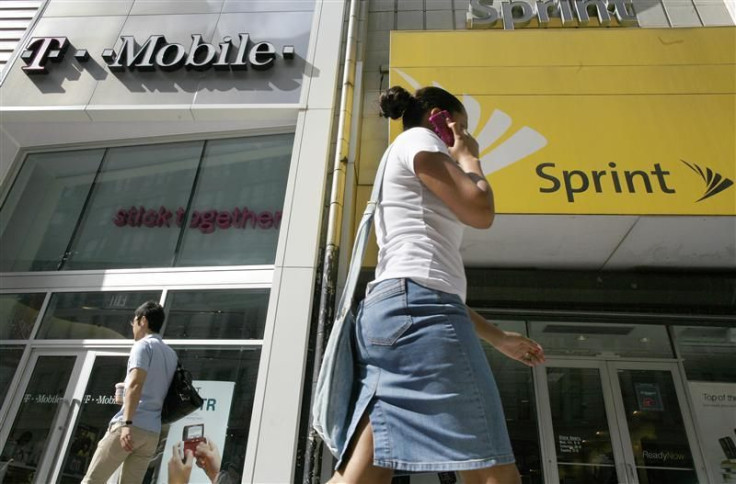Sprint CEO Remark Spurs Talk of T-Mobile Bid

Sprint Nextel CEO Dan Hesse (NYSE:S) fueled speculation the collapse of AT&T's bid for T-Mobile USA creates a strategic opportunity for his company.
It means many more options for Sprint than we would have if the merger had gone through, Hesse said in an interview with Forbes this week.
Things would have looked pretty bleak in the U.S. wireless industry if AT&T T-Mobile had gone through, Hesse continued. It's taken a worry off not only us, but others.
Shares of Sprint fell a nickel to $2.35 in midday trading.
Overland Park, Kan.-based Sprint recorded a fourth-quarter loss of $1.3 billion, or 43 cents a share, an increase of 40 percent from $929 million, or 31 cents a share, a year earlier. The company took a loss on a heavy premium paid to Apple so Sprint could offer the iPhone beginning in October. Sprint said it sold 1.8 million iPhones in the fourth quarter.
Hesse didn't make any specific mentions about deals in the earnings call except to say he would consider opportunities that would add shareholder value.
AT&T's $39 billion bid for T-Mobile collapsed following an antitrust suit filed by the U.S. Department of Justice with trial scheduled to begin this month.The Federal Communications Commission also opposed the deal.
Sprint and regional carrier C-Spire Wireless sued to block the merger.
Opportunities, obstacles
T-Mobile parent company Deutsche Telekom may still want to sell T-Mobile. A deal between Sprint and T-Mobile would have a better chance of gaining approval from shareholders since Sprint is a far smaller wireless carrier with 53 million customers compared with AT&T with 103 million customers.
Sprint would have to attract a partner or raise an enormous amount of cash for a bid, though. The company reported cash and investments only around $8.15 billion as of Dec. 31. Meanwhile, its total outstanding debt was nearly $21 billion. The company has never recovered from its 2005 acquisition of Nextel for $35 billion.
Moreover, Sprint's market capitalization is $7 billion.
Sprint could use T-Mobile's wireless spectrum to keep building out its 4G LTE (long-term evolution) wireless network, which isn't available in nearly as many areas as AT&T's or Verizon Wireless' 4G network. That could come in handy if Sprint supports an iPhone designed for LTE, which could happen by midyear.
Without a deal, Sprint could have trouble competing with the big players.
We are also cautious of Sprint's ability to continue to garner share when the LTE iPhone is launched given its limited availability of an LTE network by then, wrote UBS analyst John C. Hodulik.
But combining the two companies wouldn't be so easy. AT&T was a good buyer because both companies used a technology standard known as Global System for Mobile Communications (GSM). Sprint uses a standard called Code Division Multiple Access (CDMA).
If two carriers with different standards were to merge, the new carrier would have to operate on two networks or provide new phones to customers to get everyone on one network, said Barclay's analyst James Ratliffe.
It's quite costly, and it's certainly a lot tougher than if the networks are compatible, he said in an interview.
A deal between Sprint and T-Mobile wouldn't have to be a full acquisition. The companies could agree to a network sharing deal, allowing T-Mobile to gain access to Sprint's wireless network, allowing Sprint to gain valuable wireless spectrum.
© Copyright IBTimes 2024. All rights reserved.





















